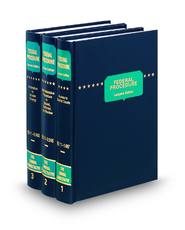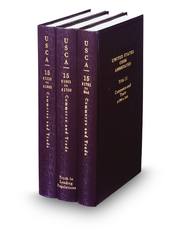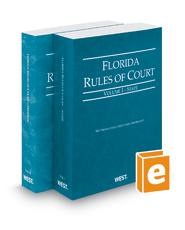
Federal Rules of Civil Procedure
In the U.S., civil procedure usually takes the form of a series of rules and judicial practices. The federal courts follow the Federal Rules of Civil Procedure.
Federal Rules of Criminal Procedure
The Federal Rules outline the procedure for conducting federal criminal trials.
"Rules of evidence are, as the name indicates, the rules by which a court determines what evidence is admissible at trial. In the U.S., federal courts follow the Federal Rules of Evidence, while state courts generally follow their own rules."
Federal Rules of Appellate Procedure
"Appellate procedure consists of the rules and practices by which appellate courts review trial court judgments. Appellate review performs several functions, including correcting errors committed by a trial court, developing the law, and achieving uniformity across courts. Appellate procedure focuses on several main themes: what judgments are appealable, how appeals are brought before the court, what will be required for a reversal of the lower court (such as a showing of "abuse of discretion or "clear error"), and what procedures parties must follow."
 Federal Procedure, L.Ed.
by
Federal Procedure, L.Ed.
by
 United States code annotated. Constitution of the United States annotated : annotations from federal and state courts.
by
United States code annotated. Constitution of the United States annotated : annotations from federal and state courts.
by
 Florida Rules of Court - Local KeyRules, 2012 ed. (Vol. IIIA, Florida Court Rules)
by
Florida Rules of Court - Local KeyRules, 2012 ed. (Vol. IIIA, Florida Court Rules)
by
 Florida Rules of Court - Federal & State
by
Florida Rules of Court - Federal & State
by
